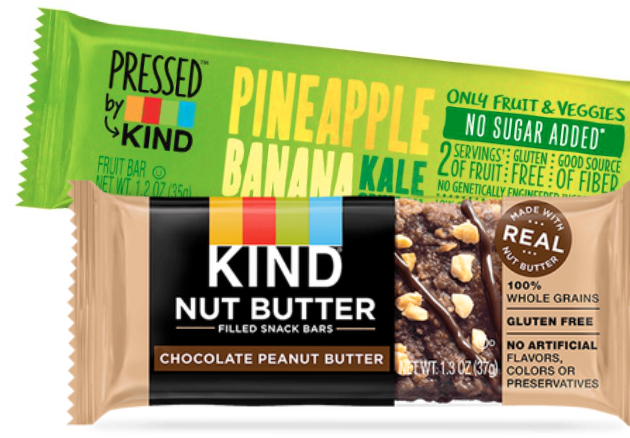NEW YORK — Kind Healthy Snacks through a letter dated March 12 filed a citizen petition urging the U.S. Food and Drug Administration to update its nutrient content claims regulations. Nutrient content claims are misused on a variety of products, including sugary cereals and snacks as well as sodium-packed frozen food dishes, according to Kind Healthy Snacks.
"Dressing up empty- calorie products by emphasizing a singular nutrient, like protein or fiber, versus the overall quality of the food is unfair to consumers," said Daniel Lubetzky, founder and chief executive officer of New York-based Kind Healthy Snacks. “By bringing greater rigor to the use of nutrient claims, F.D.A. can increase label transparency and help people better identify foods that contribute to a healthy diet, which Kind has long advocated for."
The petition, which may be found here, asks the F.D.A. to allow nutrient content claims only on items that contain a meaningful amount of a health-promoting food such as vegetables, whole fruits, whole grains, legumes and nuts. The petition said the F.D.A. could define “meaningful amount” in a way that requires food with a nutrient content claim to contain at least 51% of ingredients by weight to be sourced from a health-promoting food.
The petition also requests adjusting current disclosures as well as adding a disqualification threshold that would ban unhealthful products from having nutrient content claims.
The F.D.A. currently requires disclosure levels in products with nutrient content claims if they contain specific levels of fat, saturated fat, cholesterol or sodium. More on the current regulations may be found here.
The petition seeks to add disclosure levels for added sugar and trans fat and to remove disclosure levels for total fat and cholesterol. The petition gave an example of gummy bears that currently could have a claim of “good source of fiber” without having to disclose the amount of added sugars in the product.
The U.S. Congress first allowed the use of nutrient content claims in food labeling in 1990.
 “This regulatory framework is now significantly outdated as a result of scientific progress in the nutrition space because it does not reflect key principles of today’s evidence-based dietary guidance,” the petition said.
“This regulatory framework is now significantly outdated as a result of scientific progress in the nutrition space because it does not reflect key principles of today’s evidence-based dietary guidance,” the petition said.
Since 1990, many experts no longer recommend limiting overall fat intake or cholesterol, according to the petition. Instead they encourage increased intakes of polyunsaturated fat and monounsaturated fat and decreased intakes of saturated fat and trans fat. The F.D.A. also recently established a Daily Value for added sugars and in 2020 will begin requiring the declaration of added sugars on the Nutrition Facts Label of products.
In giving credence to the importance of nutrient content claims, Kind Healthy Snacks pointed to a poll conducted Feb. 18-March 4 among a national sample of 595 registered dietitians. The poll revealed 75% of the registered dietitians said the top reason nutrient content claims impact purchases is because their clients/patients believe the food bearing the claim is a healthy item and that 85% of the registered dietitians said they often come across products with nutrient content claims they would not recommend as part of a healthy diet. The registered dietitians were part of Kind’s Nutrition Collective, a collection of registered dietitians, but none were employed by Kind.
Kind Healthy Snacks also funded a poll fielded by Morning Consult, Washington. The national poll of 2,202 adults conducted from Feb. 19-21 found 68% said nutrient content claims were important when deciding which products to purchase.
Ten leaders in the public health field co-signed the petition. They included David L. Katz, M.D., founding director of the Yale University Prevention Research Center; David J.A. Jenkins, M.D., Ph.D., of the University of Toronto; Connie Diekman, a registered dietitian and former president of the Academy of Nutrition and Dietetics; and Sara Baer-Sinnott, president of Oldways.




